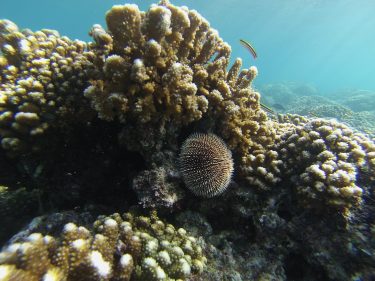
Acidification of the world’s oceans could drive a cascading loss of biodiversity in some marine habitats, according to research published Nov. 21 in Nature Climate Change.
The work by biodiversity researchers from the University of British Columbia, the University of Washington and colleagues in the U.S., Europe, Australia, Japan and China, combines dozens of existing studies to paint a more nuanced picture of the impact of ocean acidification.
While most research in the field focuses on the impact of ocean acidification on individual species, the new work predicts how acidification will affect the living habitats such as corals, seagrasses and kelp forests that form the homes of other ocean species.
“This work demonstrates the value of international collaborations to address a problem that’s global in scope and crosses boundaries between distinct habitats and ecosystems,” said co-author Terrie Klinger, professor and director of the UW’s School of Marine and Environmental Affairs who also co-directs the Washington Ocean Acidification Center. “We can begin to test predictions with data from different locations to better understand likely ecosystem responses to ocean acidification.”
Read more at UW Today »
